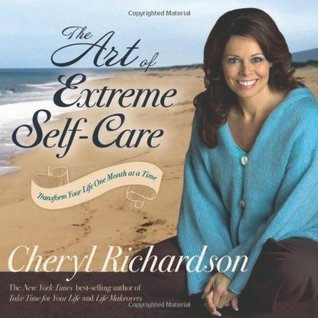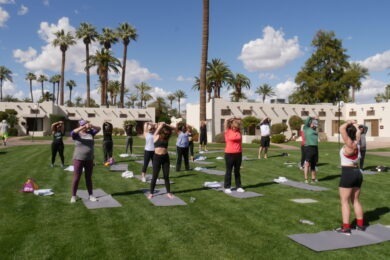The phrase “self-care” floats around in a realm of terms like “wellness” and “mindfulness”—terms we most often see in the marketing of supplements and beauty products. However, most buzz words don’t get an international day of recognition from the World Health Organization, which is suggestive of the deep effects that true self-care can have on daily life. July 24th was established as International Self Care Day in 2011 to “recognize and acknowledge the need for innovative health strategies that go beyond traditional models for healthcare.”
See also: How to Increase Wellness Options in the Lives of Meeting Professionals
Innovative health strategies, put more plainly, are practices that keep the human body in a state of health and vitality—effectively, preventive health care. Self-care, then is antonymous to a common western work pattern: go at full speed, ignore telltale signs of impending burnout, then treat the symptoms once they show up.
Throw What You Thought About Self-Care Out the Window
Rather than thinking of self-care as frivolous, a luxury, or even selfish—let’s take a moment to acknowledge the psychological and physical reality of being human: We only have so much energy. When it’s emptied out (mentally, emotionally or physically), we become less efficient and less focused.
This leads to stress and dissatisfaction, which also impacts our relationships, since we have less understanding, empathy and patience in this state of depletion. A self-care practice simply means establishing habits that replenish your energy so that you can direct it to the pursuits and people that matter in your life.
Self-Care for Meeting Professionals
The hospitality industry is all about taking care of people, and the concept of making an impact through small gestures, details and moments is no stranger to event planners. Turn this awareness inward to develop your own self-care strategy. Self-care includes anything that revives and replenishes you. It encompasses wellness basics such as staying hydrated, getting adequate nutrition and moving your body, but it also goes deeper than physiological necessities.
More: Free Meditation Apps for Event Planners on the Go
What activities or practices do you find fulfilling that are (seemingly) only for you? Would you like to start your day off getting a coffee (“for here”) from your favorite cafe? Do you ever take a full 30 minutes to sit and enjoy a mindful meal during your workday, or do you eat forkfuls of takeout as you browse your emails? Learning to take a little time for yourself—to be silent, reflect or simply enjoy what’s in front of you is a simple way to initiate self-care.
Subjects of Self-care

Countless articles will tell you to make time for a massage or a spa day, giving us the idea that self-care means indulgence. While a spa treatment could be an aspect of self-care, the practice is highly personal.
Think about self-care as any practice that feels revitalizing. Under the subject of time, this often means managing time so that we don’t feel overworked and taking breaks for clearing the mind. Physical self-care involves hydration, nutrition, fitness and recovery. Mental self-care could be allowing introspection, journaling, learning about something that interests you, doing crosswords—or anything that slows the barrage of could’ve-should’ve-would’ves.
Physical wellness practices are an especially important component because the body, when left uncared for, gives us warning signs. If ignored, they turn to illness. Our bodies are always with us, so becoming aware of how we feel in them is paramount to assessing our self-care needs. Do you feel energized, flexible and strong, or burnt out, tight and weak?
The body is an expression of the mental state—if something is off internally, it becomes external. Rather than berating your body for any lack, recognize that any discomfort is a call for attention. Perry Nickleston, a chiropractic physician specializing on performance enhancement with a healthy dose of mindfulness, reminds his patients that “pain is a request for change.”
Exercise (as you’ve heard 1,000 times) does everything from boosting immunity and keeping blood sugar stable to improving your mood, so it’s an important pillar of self-care. Don’t think you need to overcommit to five days a week in the gym, either. Incorporating exercise could mean a 20-minute midday walk, going to a fitness class twice a week, or starting with a 10-minute stretch for every couple of hours sitting at your computer. Incorporate recovery practices like foam rolling (or trying something new like a magnesium float tank) so that your exercise doesn’t turn into another stressor.
Keep It Simple
Self-care is about stress reduction, so don’t make it one more thing to get done. You can keep the practice simple by asking: What makes me feel good? What energizes me? What does my body need? How can I make things easier on myself? Take the practice seriously but lightly—and look forward to continuous, measurable improvements in both your work and personal life.
Assess Your Needs
 Cheryl Richardson, author of The Art of Extreme Self-Care: Transform Your Life One Month at a Time, suggests asking yourself these questions to find a self-care strategy:
Cheryl Richardson, author of The Art of Extreme Self-Care: Transform Your Life One Month at a Time, suggests asking yourself these questions to find a self-care strategy:
Where do I feel deprived?
What do I need more of right now?
What do I need less of?
What do I want right now?
What am I yearning for?




